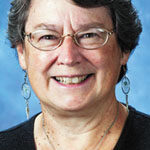
A volunteer from our diocese checked up on a fellow parishioner who has immediate and extended family members, including her husband, suffering from COVID-19. The parishioner, who lost her job because of the pandemic, can barely take care of her family. She, too, has contracted COVID-19. The volunteer learned that the exhausted parishioner needed help — groceries, laundry detergent and a shoulder to cry on.
The pandemic, four-and-a-half months old and counting, has exposed and exacerbated crises within our society that we have failed to address with both feet of social action: charity and systemic change. These issues include racism, poverty, unaffordable housing, economic injustice, the school-to-prison pipeline and environmental degradation, among others. Each of these issues connect in a web of causes and consequences. Jesus tells us how to respond: “Amen, I say to you, whatever you did for one of these least brothers of mine, you did for me” (Matthew 25:40).
What are we doing to protect and compensate the essential workers who stock our grocery stores, ring us up at the register, pick produce from farm fields, cut meat at packing plants and deliver food, cleaning supplies and medications across the country? What are we doing to ensure that they receive a just wage that allows them to support their families? What are we doing to ensure that working conditions at the plants help prevent employees from contracting COVID-19?
These essential workers help us to manage day to day. Those working in low- or semi-skilled labor often earn lower pay and have inadequate health coverage or savings. Putting food on the table becomes nearly impossible when they lose pay or work. Paying the rent or the mortgage becomes a huge challenge.
As local governments begin lifting moratoriums that deferred rent payments for millions of tenants who lost jobs to the pandemic, evictions could surge. In Michigan, where the state planned to lift the eviction moratorium this week, the 211 call center that provides social services to those in most need reported a 76 percent spike in calls, according to Yahoo!Money. Nationally, the call volume has jumped 200 percent (https://tinyurl.com/yd62sk5m).
When Congress returns next week, it will decide whether to spend $11.5 billion in homeless assistance, $100 billion in emergency assistance, and critical investments in housing vouchers, according to the National Alliance to End Homelessness. We need to convince Congress to say yes to this funding!
While the federal and state government and local charities are responding to immediate needs, individuals and families still struggle with food insecurity and unemployment. Those conditions will not change overnight. An increase in SNAP (food stamp) benefits “would minimize COVID-19’s lasting impact on a generation of children,” says Brynne Keith-Jennings, senior analyst with the Center on Budget and Policy Priorities. A 15 percent increase in SNAP funds “would help families put food on the table and help stimulate the economy by enabling families to buy more food in local stores” (https://tinyurl.com/y75hgn2a).
The U.S. Conference of Catholic Bishops (USCCB) Action Center spells out the interconnectedness of some of these issues that require immediate attention. “Families and individuals are facing immediate hardships: rent is due, food prices are rising, layoffs continue, access to healthcare is being lost, and those who are most vulnerable in the criminal justice system are not being adequately protected from the coronavirus. As followers of Christ, we are called to create a society where the needs of the poor and vulnerable are always considered first. Tell your Senators to act now to support those who are poor and vulnerable during this pandemic by:
• Providing resources to meet the needs of those who are homeless and those struggling to keep a roof over their heads.
• Increasing SNAP benefit amounts.
• Enacting policies that encourage and support employers to retain and rehire workers and considering additional stimulus payments.
• Ensuring affordable healthcare access for everyone during this health crisis, but especially for the poor, uninsured, unemployed and vulnerable populations including immigrants and refugees — without providing federal funding for abortion coverage.
• Safeguarding those who are most vulnerable to COVID-19 in our criminal justice system and increasing medical resources to care for those who do become ill while incarcerated.”
Visit the USCCB Action Center at (https://tinyurl.com/ychk2lox) and make your ask to Congress, which returns next week. Do it for the exhausted wife and mother, an active parishioner in one of our parishes, who needs us to be the voice of Christ in a society that has not been listening.
Barb Arland-Fye, Editor
(arland-fye@davenportdiocese.org)
Support The Catholic Messenger’s mission to inform, educate and inspire the faithful of the Diocese of Davenport – and beyond! Subscribe to the print and/or e-edition, or make a one-time donation, today!











